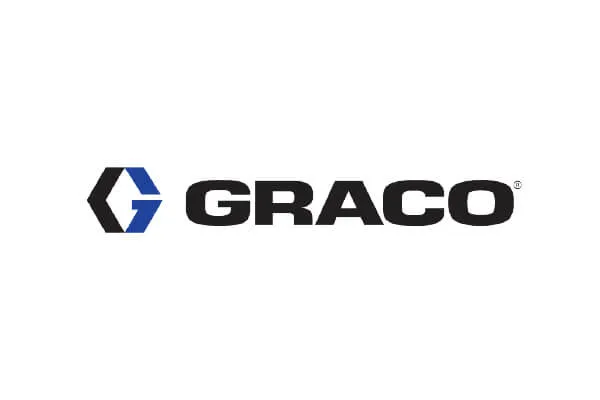
CHMP Endorses Darolutamide (Nubeqa™) Plus ADT for Metastatic Hormone‑Sensitive Prostate Cancer in EU
CHMP The Committee for Medicinal Products for Human Use (CHMP) of the European Medicines Agency (EMA) has issued a positive opinion recommending the use of darolutamide—an innovative oral androgen receptor inhibitor (ARi)—in combination with androgen deprivation therapy (ADT) for the treatment of men living with metastatic hormone-sensitive prostate cancer (mHSPC). This recommendation marks a critical step in bringing an important new treatment option to patients across the European Union.
1. Background: Harnessing Darolutamide in mHSPC
CHMP Darolutamide, known commercially as Nubeqa™, is a next-generation ARi specifically engineered to target the androgen receptor pathway with high potency and minimal penetration of the blood–brain barrier. This molecular profile leads to potent anti‑cancer activity while limiting some of the central nervous system side effects seen with earlier-generation AR inhibitors. Injectable ADT—commonly using luteinizing hormone–releasing hormone (LHRH) agonists or antagonists—remains the cornerstone of prostate cancer therapy by suppressing testosterone, the primary activator of prostate tumor cells. Combining darolutamide with ADT seeks to more fully thwart androgen receptor signaling, interrupting tumor growth and disease progression.
2. The Pivotal ARANOTE Phase III Study
The CHMP’s endorsement is grounded in the Phase III ARANOTE trial, which enrolled men with metastatic hormone-sensitive disease who were already on ADT. Participants were randomized to add either oral darolutamide or a matching placebo alongside ongoing ADT. The study’s primary endpoint—radiographic progression-free survival, defined as the time from randomization to radiologic progression or death—was met with compelling results.
Key findings include:
- CHMP A 46% reduction in the risk of radiographic progression or death, with a hazard ratio of 0.54 (95% confidence interval: 0.41–0.71; P < 0.0001), favoring darolutamide plus ADT over placebo plus ADT.
- A strong safety profile, consistent with earlier trials in non-metastatic or castration-resistant settings.
- Encouraging trends observed in secondary endpoints such as overall survival, time to symptomatic skeletal events, and quality of life.
These outcomes underscore the ability of darolutamide to meaningfully delay disease progression while maintaining tolerability—a combination that informed the CHMP’s positive recommendation.
3. Expert Perspective: Balancing Efficacy and Quality of Life
Christine Roth, CHMP Executive Vice President for Global Product Strategy and Commercialization at Bayer, highlighted the broader impact of the CHMP opinion. She noted that this decision advances darolutamide’s position as a “leading therapy across various stages of prostate cancer.” For clinicians, the endorsement translates into a new combination treatment—darolutamide plus ADT—that can be used with or without chemotherapy, offering versatility and strengthening individualized care strategies.
CHMP Echoing this sentiment, Dr. Fred Saad, a renowned genitourinary oncologist from the University of Montreal Hospital Center (CHUM) and principal investigator of the ARANOTE trial, emphasized that darolutamide is the first ARi to demonstrate in a randomized trial not only robust efficacy but also preserved health-related quality of life. He remarked that this dual benefit “empowers physicians to better personalize care and improve outcomes for their patients.”
4. Global Regulatory Trajectory
CHMP Following this European Committee recommendation, a formal decision from the European Commission is expected in the coming months. Should approval be granted, dizolutamide plus ADT will become an approved treatment option across the EU for men with mHSPC.
In parallel developments, U.S. regulators recently granted approval for this same regimen. The U.S. Food and Drug Administration (FDA) in June 2025 authorized darolutamide in combination with ADT for metastatic hormone-sensitive prostate cancer, marking it as the first ARi indicated in that setting in the U.S., whether used with or without chemotherapy. This regulatory milestone reflects mounting global confidence in the therapy’s value.
5. Established Approvals and Clinical Use
Darolutamide is already widely used under the brand name Nubeqa™. Its existing approvals include:
- In combination with ADT + docetaxel for mHSPC in more than 85 countries worldwide.
- With ADT alone for non‑metastatic castration-resistant prostate cancer (nmCRPC) in patients at high risk of progressing to metastatic disease.
Given this charted clinical experience, extending darolutamide’s use into EU mHSPC settings aligns with its demonstrated versatility and therapeutic promise.
6. Prostate Cancer: Scope and Public Health Significance
Prostate cancer remains a major global health challenge. It is the second most common cancer and ranks as the fifth leading cause of cancer death among men worldwide:
- In 2022, approximately 1.5 million new prostate cancer cases were diagnosed globally, with about 397,000 related deaths.
- In Europe alone, around 474,000 new cases and 115,000 deaths were reported in the same year.
- Projections indicate that the annual incidence of prostate cancer worldwide could reach nearly 2.9 million by 2040, reflecting demographic shifts and population growth.
Against this backdrop, advanced prostate cancer—specifically the hormone-sensitive metastatic form—carries a significant burden due to its potential for rapid disease spread and impact on patient survival and quality of life. Innovations like darolutamide plus ADT could modulate this trajectory, offering more durable control with manageable side effects.
7. Implications for Physicians and Patients
If approved in the EU, darolutamide‑ADT may become a widely adopted regimen in clinical practice for several reasons:
- Favorable balance of efficacy and tolerability: The substantial reduction in progression risk, combined with a low side‑effect profile and maintained quality of life, makes it an attractive choice for patients and clinicians alike.
- Flexible use—chemotherapy optional: Approved for use with or without docetaxel, it accommodates diverse patient preferences and clinical scenarios, including those unfit for chemotherapy.
- Continuity of care across disease stages: Physicians already using darolutamide in CRPC or other indications can transition their patients without the need for new medications, potentially simplifying treatment sequencing.
- Reduced need for hospital-based therapies: As an oral agent, darolutamide avoids the need for intravenous administration, aligning with trends toward outpatient management and patient convenience.







